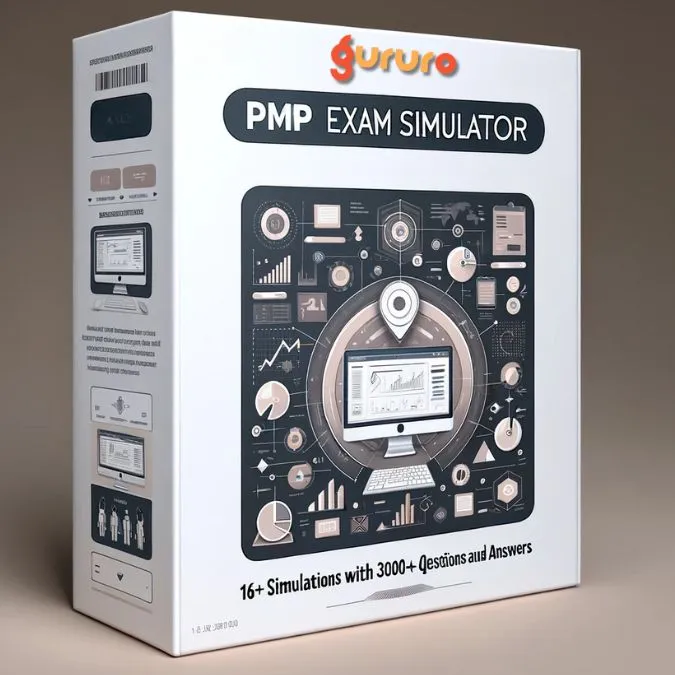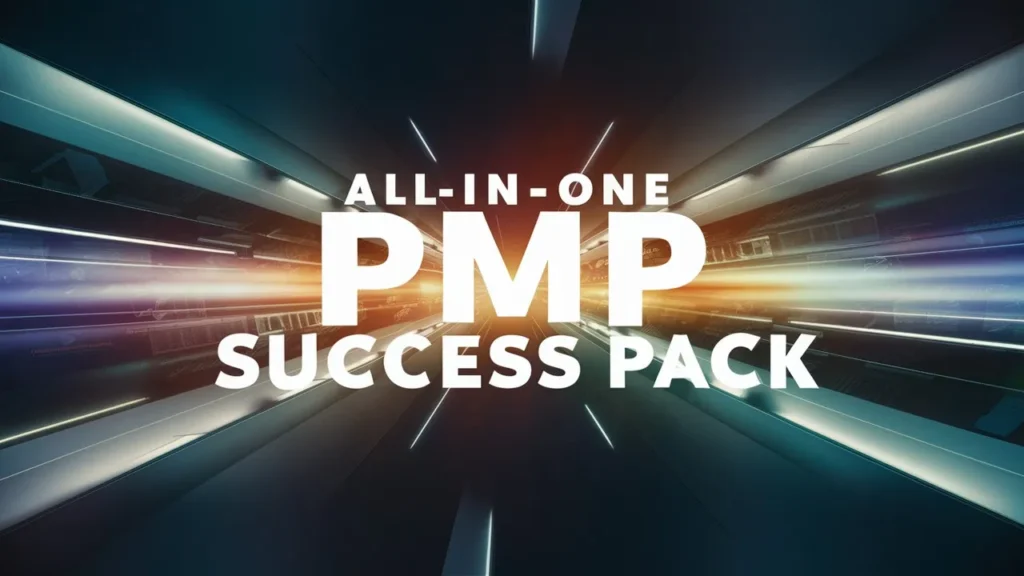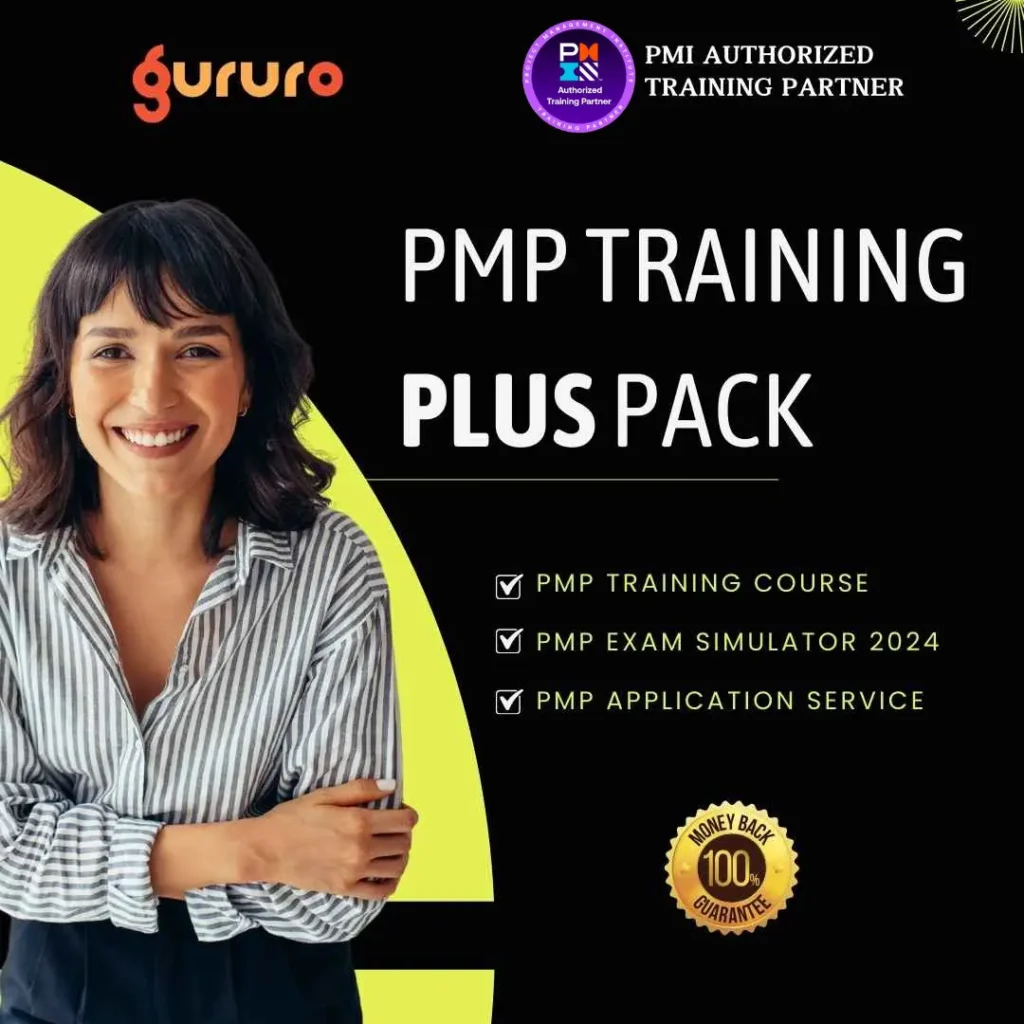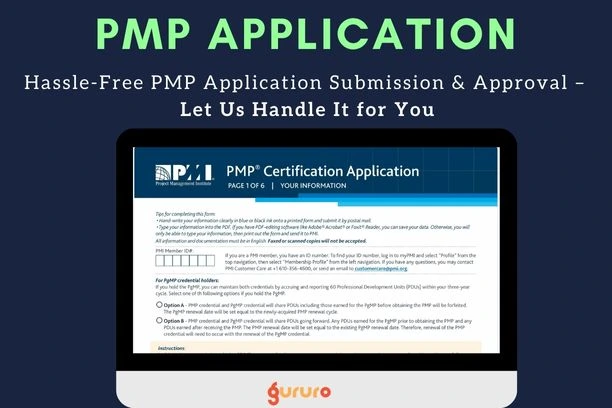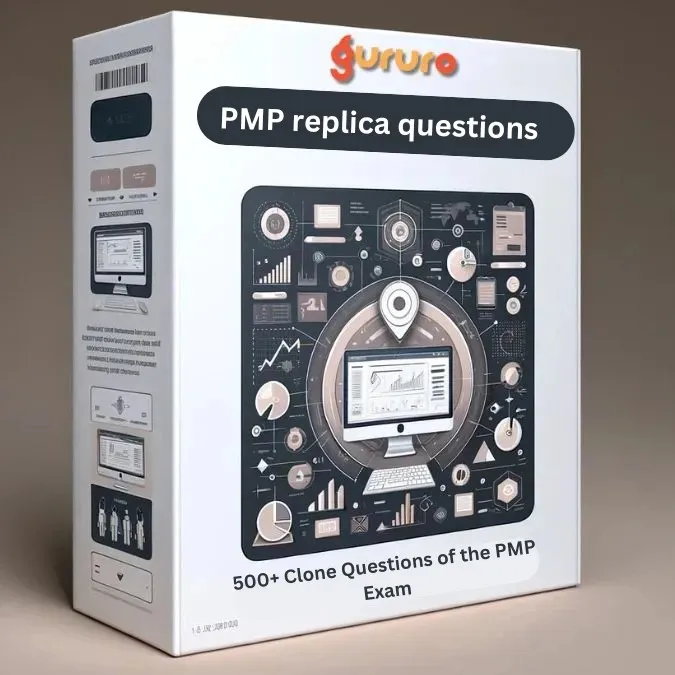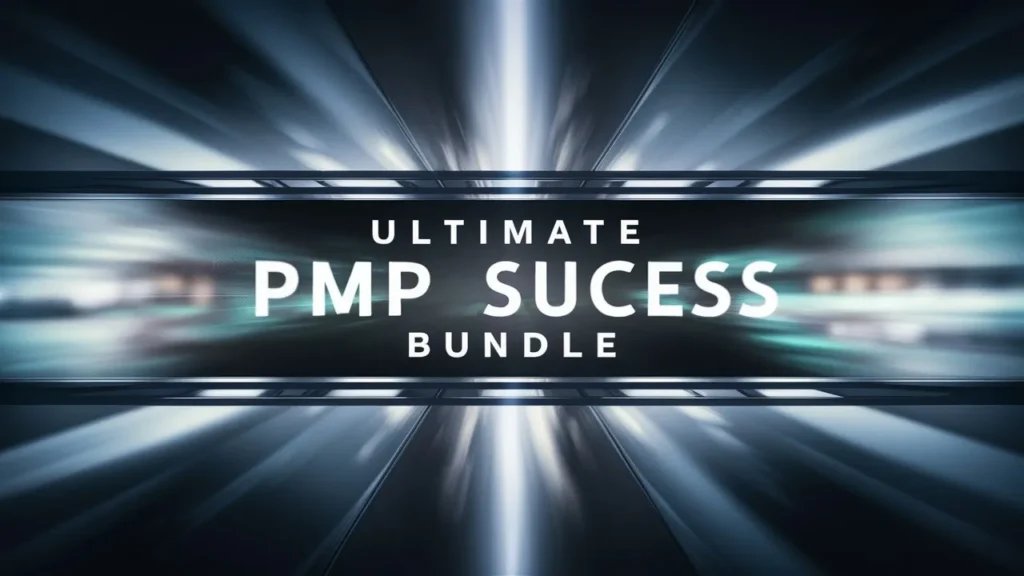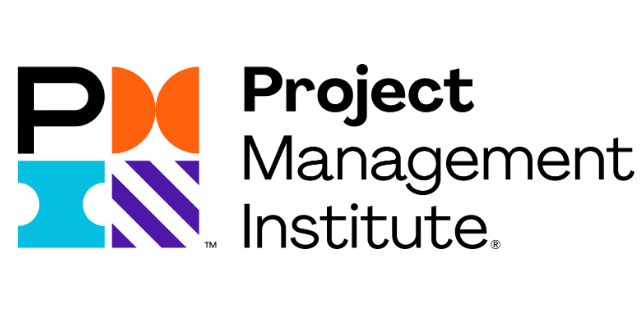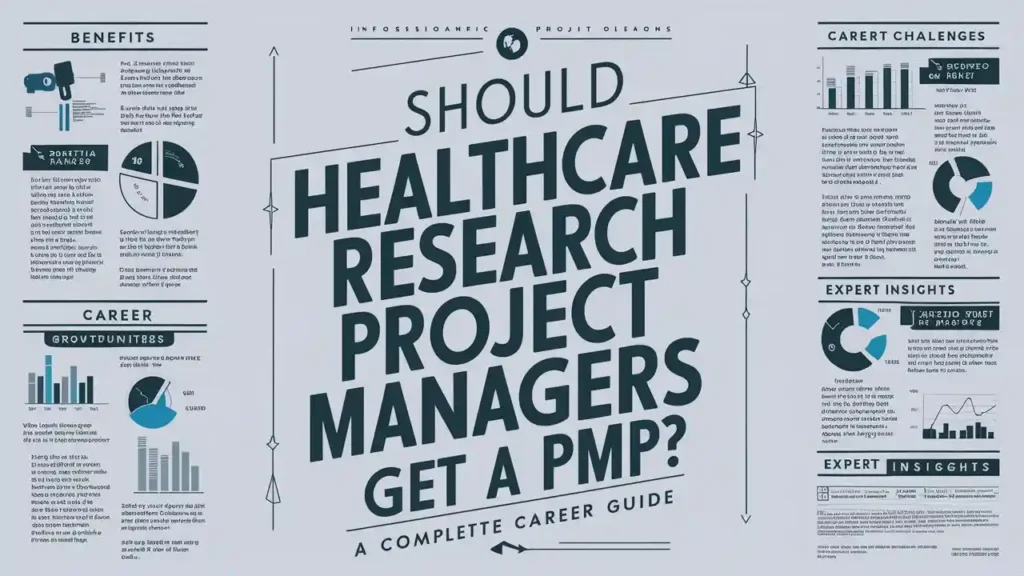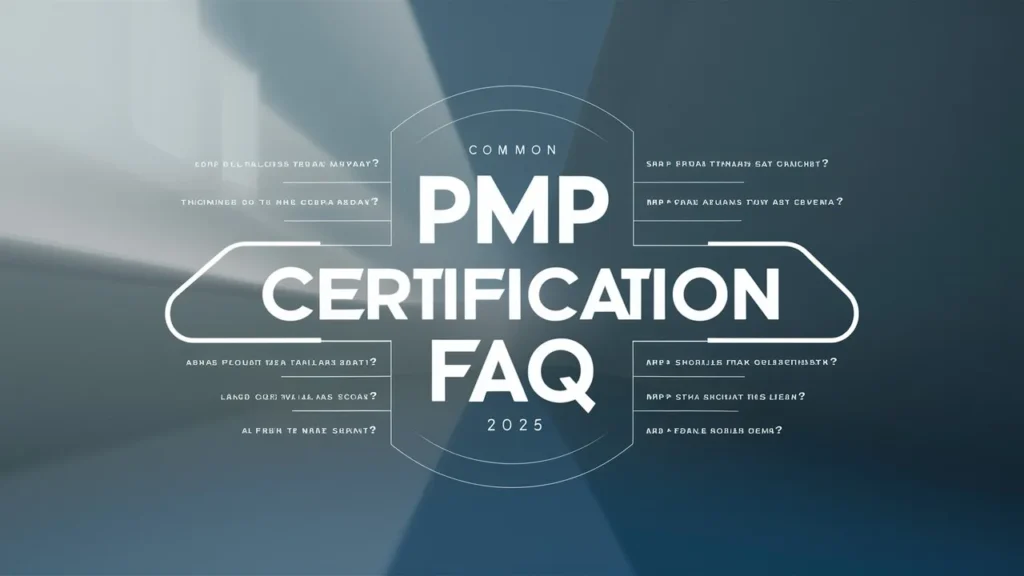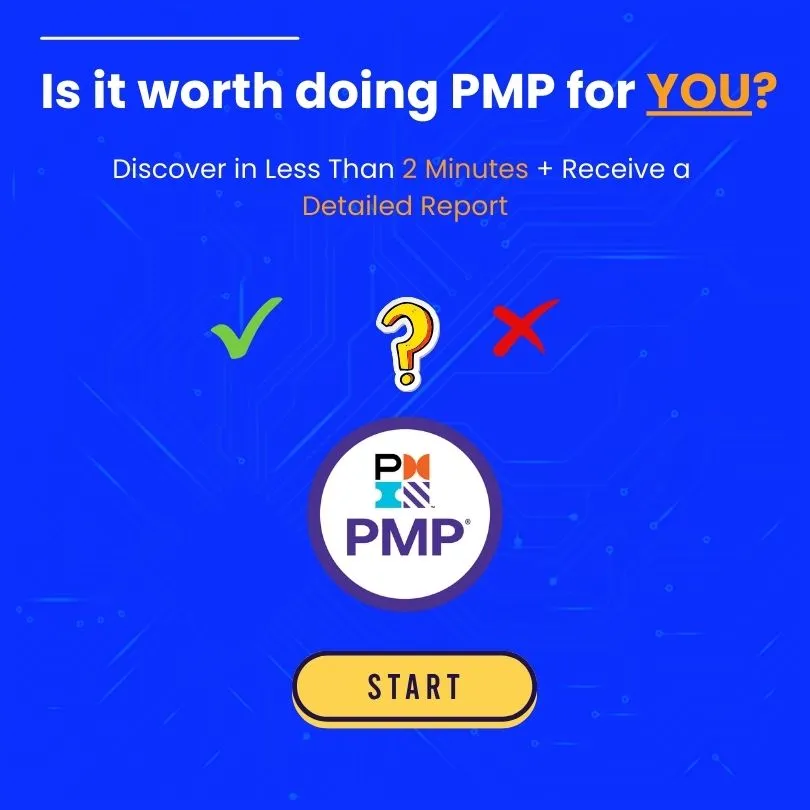The Project Management Professional (PMP®) certification, offered by the Project Management Institute (PMI), is recognized worldwide as a mark of excellence in project management. Earning this certification can lead to career advancement, higher salaries, and increased project management proficiency. However, many aspiring PMPs wonder if they can take the PMP exam without studying extensively. The allure of bypassing the rigorous study hours can be tempting, but is it feasible?
This blog ‘Can I Take the PMP Exam Without Studying?’ explores whether it’s possible to pass the PMP exam without studying, the realities of the PMP exam’s demands, and the potential consequences of underestimating the preparation needed. Additionally, we’ll discuss strategies for efficient study and how structured programs like Gururo’s PMP Certification Training and PMP Simulator can make preparation manageable and effective.
Understanding the PMP® Exam: Structure and Complexity
The PMP exam is designed to assess a candidate’s understanding of project management principles, processes, and best practices as outlined in PMI’s Project Management Body of Knowledge (PMBOK® Guide). PMI developed the PMP exam to ensure that certified professionals possess the necessary knowledge, skills, and competencies to handle complex project management scenarios.
Exam Structure
The PMP exam consists of 200 multiple-choice questions that must be completed within four hours. These questions cover five major process groups:
- Initiating – Setting the project’s foundation and defining objectives.
- Planning – Developing a roadmap for project execution, resources, and timelines.
- Executing – Implementing the project plan and managing resources.
- Monitoring and Controlling – Tracking progress, addressing issues, and maintaining alignment with project goals.
- Closing – Finalizing project activities and evaluating outcomes.
Each process group includes topics like project scope, time, cost, quality, resources, risk, and stakeholder management. This structure requires a comprehensive understanding of project management and an ability to apply concepts to real-world scenarios.
Can You Really Pass the PMP® Exam Without Studying?
To put it simply, it’s highly unlikely. The PMP exam is known for its rigor and complexity, and passing without studying is a high-stakes gamble. Here’s why:
- Depth of Knowledge Required: The PMP exam covers a vast array of topics, all of which require a deep understanding. Attempting the exam without studying or relying solely on superficial knowledge might leave you unable to answer most questions accurately.
- Situational and Analytical Questions: Many PMP questions require more than basic knowledge. They involve situational problem-solving that tests your ability to apply project management principles in real-world scenarios. Without preparation, it’s challenging to develop the analytical skills needed to tackle these questions.
- The PMBOK Guide Complexity: PMI’s PMBOK Guide is central to the PMP exam and provides a detailed framework for project management. While experienced project managers may be familiar with certain aspects of this guide, the level of detail required to pass the exam usually necessitates thorough review and study.
Risks of Taking the PMP® Exam Without Studying
Attempting the PMP exam without studying can have significant downsides, including:
- Risk of Failing: The PMP exam isn’t cheap, and retaking it after a failed attempt involves additional costs and time. By not preparing, you increase the likelihood of failing and facing extra expenses.
- Lost Time: Preparing for the PMP exam without a structured study approach can waste valuable time. Rather than gambling with your efforts, an organized study plan can streamline your preparation and increase your chances of passing.
- Missed Career Opportunities: A failed attempt could delay your certification, which may postpone career advancements or opportunities that require PMP certification.
The Benefits of a Structured Study Plan
Passing the PMP exam requires more than general project management experience. A structured study plan is essential for success, providing a roadmap to cover critical areas, solidify understanding, and build confidence.
Key Components of an Effective Study Plan
- Understanding PMBOK Concepts: The PMBOK Guide covers a comprehensive framework, and it’s crucial to master its contents. A structured program, like Gururo’s PMP Certification Training, aligns with PMBOK guidelines, ensuring you cover all necessary topics thoroughly.
- Taking Practice Exams: Practice exams familiarize you with the format and timing of the PMP exam. Gururo’s PMP Simulator offers realistic practice questions to test your knowledge and build confidence in answering PMP-style questions under timed conditions.
- Focusing on Weak Areas: Identifying and improving on weak areas is crucial for effective preparation. Practice exams and review sessions help highlight areas where you need further study, allowing you to refine your focus and study more efficiently.
- Setting Aside Dedicated Study Time: PMP preparation requires a significant time commitment. By setting aside specific hours each week, you can cover all topics systematically without feeling overwhelmed.
- Leveraging Free Resources: Gururo provides resources like a free PMP application, simulator, and study plan to help candidates plan their study journey effectively.
A Realistic Approach to Passing the PMP® Exam
While it’s possible to pass the PMP exam without formal training, it’s generally not advisable. However, for those who prefer to prepare independently, here are some tips to maximize your chances of success:
1. Use the PMBOK Guide as Your Primary Resource
The PMBOK Guide is the core resource for the PMP exam. To succeed, you’ll need to understand its process groups, knowledge areas, and the inputs, tools, and outputs associated with each process. Allocate ample time to study this guide, breaking it down into manageable sections to cover over several weeks.
2. Take Advantage of Free and Supplementary Resources
Gururo’s free PMP application, simulator, and study plan is a valuable resource to help you get started with PMP preparation. This plan includes guidance on structuring your study time, access to practice questions, and insights into effective preparation strategies.
3. Practice with a PMP Exam Simulator
Practice exams are critical to mastering the PMP exam’s format and timing. A reliable simulator, like Gururo’s PMP Simulator, provides real-world practice that helps you develop stamina and improve your test-taking strategies. Regular practice can reveal areas where you need improvement, allowing you to focus your study efforts efficiently.
4. Stay Consistent with a Study Schedule
The PMP exam requires consistent study. Dedicate a set amount of time each day or week to focus on key areas, making sure you build familiarity with each topic. Consistency is key to retaining the information and building the confidence needed to pass the exam.
5. Identify and Address Weaknesses
While practicing, pay close attention to areas where you struggle. Reviewing these areas intensively will help you gain the depth of knowledge necessary to tackle even the most challenging questions on the exam.
The Value of Formal PMP® Training Programs
Formal PMP training programs offer structured study, expert guidance, and access to resources that can simplify your preparation. Here’s why investing in a program, such as Gururo’s PMP Certification Training, is a wise choice:
- Comprehensive Coverage of PMBOK Guide: PMP training courses ensure you cover every section of the PMBOK Guide, including critical concepts you may overlook in self-study.
- Professional Guidance: Qualified instructors provide insights, explanations, and test-taking tips that can help you grasp difficult concepts and avoid common mistakes.
- Fulfillment of PMI’s 35 Contact Hours Requirement: A training program like Gururo’s not only prepares you for the exam but also satisfies PMI’s 35 contact hours prerequisite, which is required for eligibility.
- Accountability and Structure: With a dedicated schedule and structure, formal training keeps you on track, helping you avoid procrastination and maintain steady progress.
Common Misconceptions About Passing the PMP® Exam Without Studying
- “I have enough project management experience; I don’t need to study.”
- While experience is beneficial, the PMP exam tests specific PMI standards, methodologies, and the PMBOK Guide framework. Even experienced managers find the exam challenging without preparation.
- “Sample questions alone will prepare me.”
- Sample questions help you get used to the exam format but don’t provide the depth of understanding required to answer complex questions. Using a structured simulator, like Gururo’s PMP Simulator, offers a more comprehensive practice experience.
- “I’ll just skim the PMBOK Guide.”
- The PMBOK Guide is dense, and a cursory read may leave gaps in understanding. PMP training programs and practice tests help reinforce and contextualize these concepts.
Conclusion: Can I Take the PMP Exam Without Studying?
In conclusion, while it’s theoretically possible to pass the PMP exam without studying, the risks and challenges are high. The PMP exam is a complex, in-depth test that requires a thorough understanding of PMI’s methodologies and the PMBOK Guide. Attempting the exam without preparation may result in failure, leading to lost time, additional costs, and missed career opportunities.
If you’re serious about passing the PMP exam, consider enrolling in Gururo’s PMP Certification Training to gain structured, comprehensive preparation. Supplement your studies with tools like the PMP Simulator and a free study plan to maximize your chances of success.
By investing time and effort into studying, you’ll not only pass the PMP exam but also build the foundational knowledge needed to excel in your project management career.


